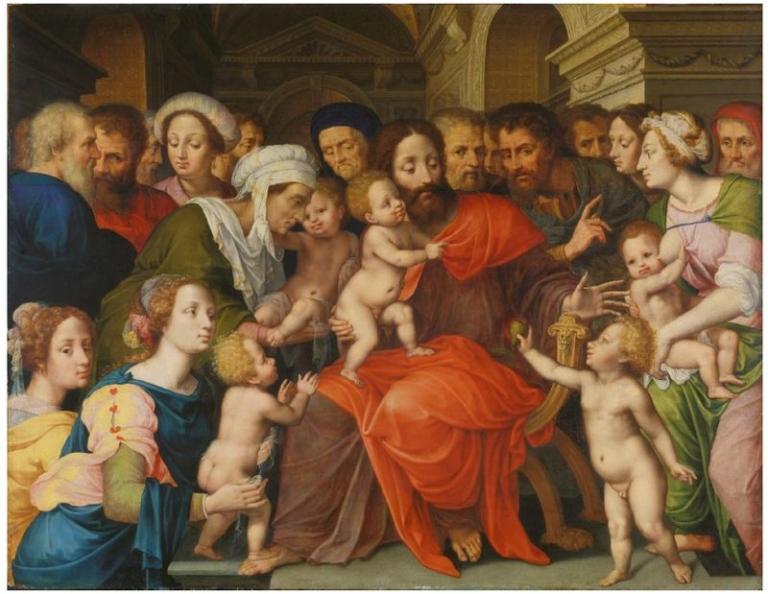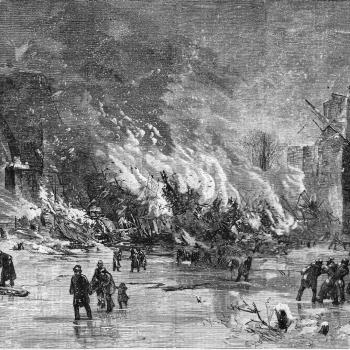
Compare Matthew 18:3; John 3:3, 5
It’s extremely difficult for me to imagine that the Person depicted in these verses, holding the attitudes toward little children that are revealed in this episode, could also (as some Christian denominations have held) have ordained that infants and children, if they die without baptism, are forever denied entrance into heaven.
Jesus’ attention to little children tells us many things.
Among them, we learn that he doesn’t value wealth, status, power, sophistication, class, or degrees.
He just doesn’t care.
Nor, apart from the very specific situations in which such things might be directly relevant — e.g., you want your brain surgeon to have a medical degree — should we.

(Wikimedia CC public domain image)
1.
Jesus’ humble unwillingness to pronounce himself “good” while he was still in mortality, his mission not yet completed, is mirrored in the distinction between his statement recorded in Matthew 5:48, spoken before his crucifixion, and the quotation from him given in 3 Nephi 12:48, which was spoken after his resurrection and ascension.
2.
It’s not clear from this story — and I think it very unlikely — that Jesus expects all of his followers to give away all of their possessions and become itinerant preachers. But precisely that, I suspect, is what this young man needed, and where he could have made his greatest contribution. In other words, Jesus’ words to him were exactly calibrated to his personal case.

Compare Luke 22:28-30
1.
First of all, there’s no evidence for an ancient gate in the walls of Jerusalem known as “the eye of a needle.” This attempt to explain these passages should be abandoned.

(Wikimedia Commons public domain image)
2.
So these passages seem, at first glance, to be saying that it’s flatly impossible for a rich person to be saved.
3.
But Mark 10:24 (“how hard is it for them that trust in riches to enter into the kingdom of God!”) seems to suggest that the fundamental problem isn’t wealth in and of itself, but reliance upon wealth to the exclusion of dependence upon the grace of God.
4.
It’s also significant that, in each account, Jesus says that, while such salvation is humanly impossible, it’s possible through the saving mercy of God. In this regard, incidentally, the rich are in precisely the same position as the rest of us. None of us can save himself or herself; we can only be saved through the atonement of Christ.
5.
The concluding verses of these passages seem almost to depict Christian discipleship as a wise investment: Give up x, and you’ll receive x to the nth power in return. Still, while this expression may seem rather mercenary, the kind of discipleship being demanded still requires a great deal of faith. The costs in this life can sometimes be very, very high, and the rewards won’t all come until the next. Vast rewards will come, but there’s no human way of foreseeing them and no mortal guarantee that they will come. Surrendering oneself to God requires enormous confidence in the unseen and the yet to come.
6.
Some Latter-day Saints, particularly in the nineteenth-century, have said that Joseph Smith will play some sort of role at the Judgment.
Evangelical Christian® critics have, in many cases, been scandalized at this notion. So far as I’m aware, though, the idea that not only St. Peter but Bartholomew and Thaddaeus and Simon the Cananean will play some sort of role at the Judgment leaves them entirely unfazed.
7.
The teaching that “many that are first will be last, and the last first,” should keep us humble.
As one General Authority is said to have remarked, “When you get to heaven, don’t stare. They’ll be just as surprised to see you there as you are to see them.”












